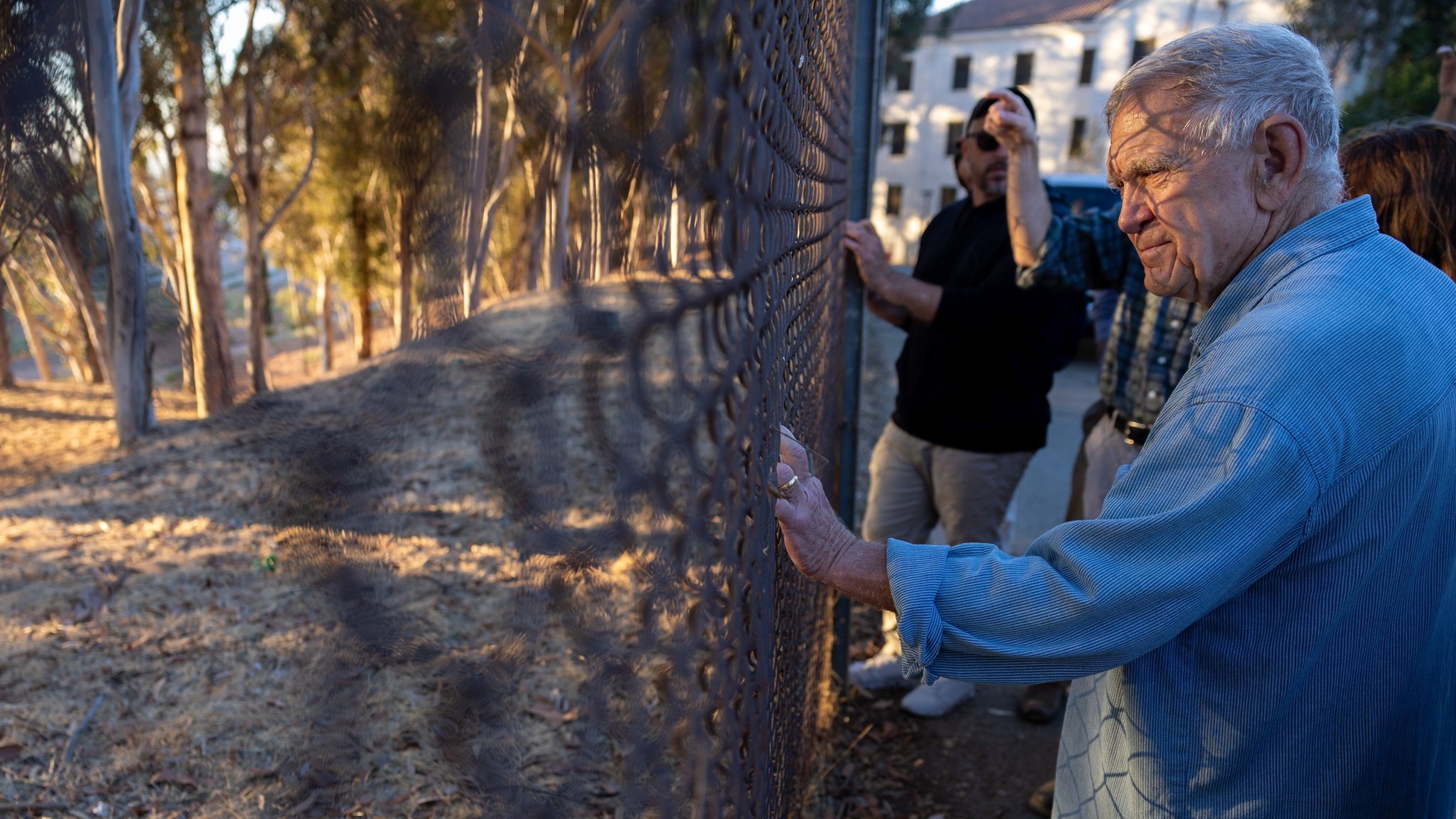

A federal judge’s order for the Department of Veterans Affairs to build more than 2,500 new units of housing on its West Los Angeles campus has been put on hold for several months after an appeals court issued a stay.
The Ninth Circuit Court of Appeals extended a previously granted temporary stay at the end of November. The appeals court set a hearing on the matter for April 2025, effectively halting any construction of new housing ordered by Carter until then at the absolute earliest.
The stay puts a stop, at least for the next several months, to federal district Judge David. O. Carter’s ruling in a major lawsuit against the VA brought by veterans and advocates for unhoused veterans. In September, Carter ruled that the VA “has not made good on its promise to build housing for veterans.” He ordered the Department of Veterans Affairs to build 1,8000 new supportive housing units on its large campus in West Los Angeles, as well as 750 temporary housing units within a year to 18 months on the site in order to immediately get unhoused veterans into shelter.
Carter’s order was a huge victory for advocates for unhoused veterans, who had argued that the VA wasn’t doing enough with its 388-acre campus to help veterans in need. The lawsuit itself had been about several matters regarding the campus, housing being one of them. Alongside the ordered housing, the federal judge also voided and invalidated several leases that involved land on the campus, including those held by oil companies and the University of California, Los Angeles.
Since Carter’s ruling, there has been a frenzy of legal activity as parties argued over the legality of his decision, the timeline and costs. Carter, himself a Vietnam veteran, continued to push the VA to take action following his September ruling. In October he ordered the plaintiffs to present options for modular housing and for the VA to pick one. Carter had revised the number of temporary housing units ordered to be built, but said that 200 needed to be immediately built, in light of the coming winter season.
He rejected an effort from the VA to put a temporary stay on the construction of temporary housing units in early November, arguing in a filing that “that the need for temporary housing for disabled, homeless veterans before winter conditions arrive is an emergency.” He also threatened to hold the department in contempt of court. The VA did appeal, and the Ninth Circuit Court of Appeals granted the temporary stay that Carter denied. The decision at the end of November extends that into 2025.
The VA said in a statement that it took the matter to the Ninth Circuit because Carter’s orders would “negatively impact veterans and their families.”
“The court exceeded its legal authority, and its orders would prevent VA from fulfilling our mission to end Veteran homelessness by diverting critical resources from efforts that are proven to get Veterans off the streets and save lives — including VA health care, permanent housing support, legal assistance, job training, and much more,” the statement from a VA spokesman continued.
The VA noted that veteran homelessness in Los Angeles has dropped 23% in 2024. The spokesman also said that the VA currently building housing separate from the units ordered by Carter and is “executing a plan that is both working for – and based on input from – Veterans and their families.”
There are currently more than 3,000 homeless veterans in Los Angeles County. The VA is currently building 1,200 housing units on the West LA campus as part of its master plan for redevelopment, itself a result of a previous lawsuit. So far only 307 of those are open. According to the department 750 of the 1,200 housing units will be open by the end of 2025. That is separate from the housing ordered by Carter and work continues on that while Carter’s order is stayed.
Update: 12/2/2024: This story has been updated with a new statement from the Department of Veterans Affairs.
The latest on Task & Purpose
- We showed the new Marine Corps recruiting ad to some teenagers. Here’s what they thought of it.
- Lt. Gen. Christopher Donahue, who commanded 82nd Airborne in Kabul, caught by Senate hold for fourth star
- The Army built a giant concrete pyramid in North Dakota and only used it for six months
- Navy fires commander of E-2 Hawkeye squadron for “loss of confidence”
- Bears got into a food locker at an Alaska Army base and left a huge mess
